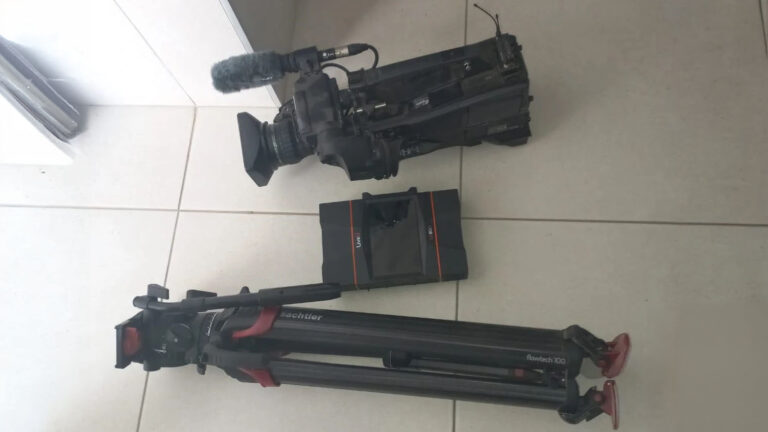
The seized AP equipment (Ministry of Communications Spokesperson)
The role of foreign media has come under scrutiny recently. In early April, the Israeli government temporarily shut down Al Jazeera and suspended the Associated Press, which was broadcasting live to the station.
According to Communications Minister Shlomo Karti, live coverage of troop deployments raises security concerns. Supporters of the station support “the important role that journalism plays in a democracy.” At the same time, live coverage from the battlefield could have dangerous consequences that could be used to the advantage of the opposing side.
General Vo Nguyen Giap, who led the North Vietnamese to victory, skillfully manipulated the Western media to exploit the freedoms and vulnerabilities of an open democratic society for his own gain. With the help of his enthusiastic American backers, he skillfully used the medium of television to weaken domestic support for the Vietnam War.
General Giap said, “In 1968, I realized that I could not defeat 500,000 American troops in Vietnam. I could not defeat the Seventh Fleet with its hundreds of aircraft, but I could bring back images that would make the American people want to stop the war.”
In June 1989, American historian William M. Hammond published an article called “The Press as an Agent of Defeat in Vietnam.” He quoted General Westmoreland, who had said in 1972 that “modern technology has provided the press with the means to indirectly involve the American public in the war almost hourly.” The article revealed the raw, uncensored truth about the war to the American public.
Eventually, the pressure of anti-war protests fueled by television coverage of Vietnam built up and became a major domestic issue that destabilized the U.S. government. In 1972, Henry Kissinger told Soviet ambassador Anatoly Dobrnin: “…for us, [Vietnam] “This is not just an international issue. It is now a major domestic issue. We cannot allow the domestic fabric of our country to be constantly tormented by this country 10,000 miles away.”
In the big picture, electronic media coverage can be extremely effective in weakening the domestic support of an opposing force. It is a kind of flanking maneuver, and the experience of the 1968 American anti-war movement shows that it was highly effective.
Confronted with the reality of 2024, it is easy to recognize how Israel and its U.S. adversaries are using the same “indirect strategy” employed by North Vietnam in the 60s and early 70s. It doesn’t take a big leap of the imagination to understand how this game is played.
In fact, thanks to the Internet and social media, it has become more sophisticated. The basic goal of the war against Israel is to cut off Israel from its traditional hinterland (and diaspora communities), which are one of Israel’s sources of support. Furthermore, on May 17, Breitbart reported that Republican Senator Ted Cruz declared that the Biden administration must investigate reports that Communist China and Cuba are directly funding and influencing radical left-wing organizations to incite anti-Israel and anti-American protests across the United States. Senator Cruz pointed out that the goal of such externally funded subversive activities is to create chaos, weaken the country, and ‘divide us.'”
Simply put, the United States has found itself the target of the same type of strategy that Israel’s enemies have used for so long against its strengths: the spirit of national unity and resilience.
Although our information is incomplete, there are clear indications that the trend for externally funded subversive activity against both the United States and Israel will increase in scope and intensity.

